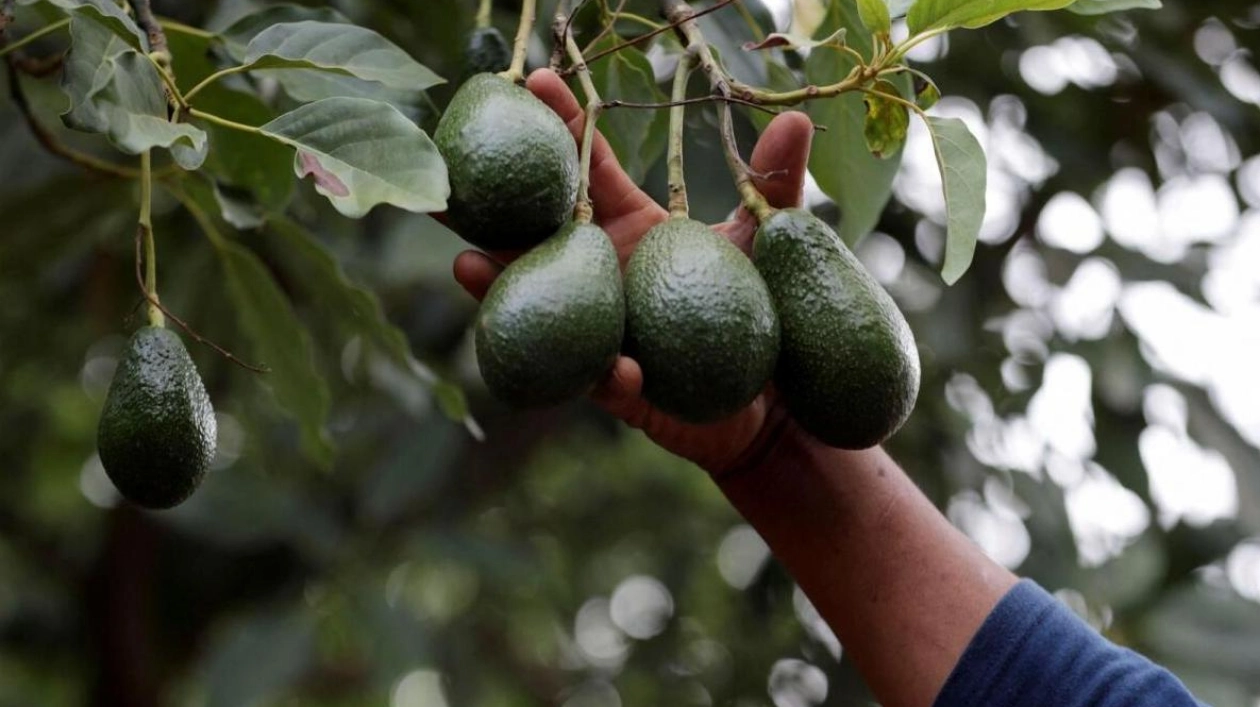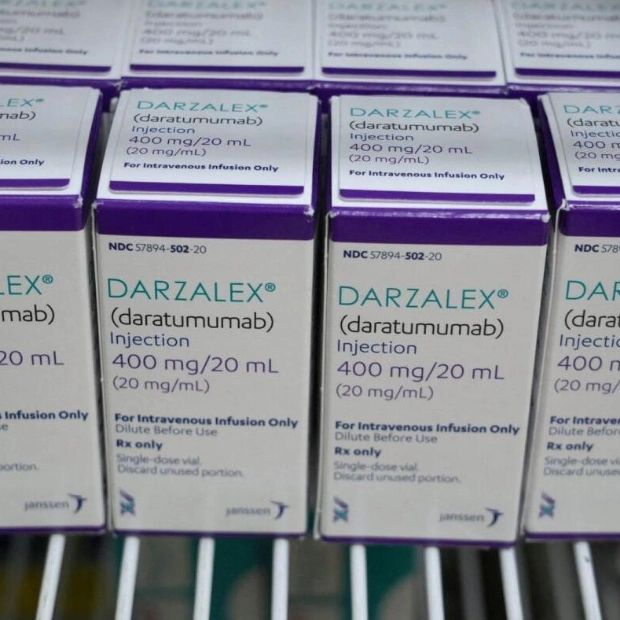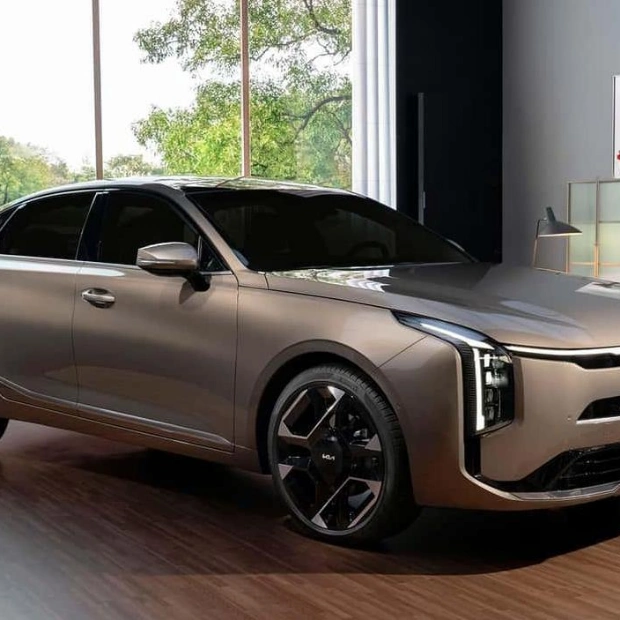On a scorching July afternoon, two massive yellow bulldozers began excavating the brown soil at the base of a verdant avocado orchard near the small town of Madero in central Mexico's Michoacan state. Drone footage captured by Reuters showed the earth movers digging into the ground, which Mexican environmental group Guardian Forestal—in collaboration with the Michoacan state government—and an activist who reviewed the video, described as an attempt to build a water reservoir. Mexican law mandates an environmental impact study and a permit for storing and using water for avocado farming, which is water-intensive. Data from the national water authority Conagua revealed that only 42 reservoirs and wells in Madero had the necessary permits. However, two activists interviewed by Reuters claimed there were hundreds of similar water pools in the area.
As Michoacan faces a drought, avocado producers frequently extract water from lakes or communal basins, depleting them to concerning levels, according to three local and state officials. Illegal practices in Mexico's avocado heartland, which is rapidly expanding to meet growing U.S. demand, are causing significant damage to nearby forests, according to Michoacan government officials. This environmental harm has led the Organic Consumers Association, a U.S. non-profit, to file lawsuits against West Pak Avocado Inc and Fresh Del Monte Produce Inc for labeling Mexican avocados as 'sustainable' or 'responsibly sourced'. 'Contrary to West Pak's claims, its avocados are neither responsibly sourced nor environmentally sustainable,' stated the Organic Consumers Association in one of the lawsuits. West Pak declined to comment, and Fresh Del Monte did not respond to inquiries.
The lawsuits filed in DC Superior Court on Monday highlight the supply chains of some U.S. companies operating in the Mexican avocado industry. While profitable for growers, the industry faces increasing pressure from organized crime groups and accusations of escalating environmental damage. Reuters visited two orchards in July, which an analysis of satellite images by U.S. nonprofit Climate Rights International showed were illegally deforested in Madero after 2015. Climate Rights International identified these orchards as having sold avocados to West Pak as recently as December and January, according to Mexican government shipping records reviewed by Reuters. During a July visit, Reuters journalists observed farm machinery digging a water reservoir on one of the orchards.
The lawsuits, filed by Irvington, NY-based law firm Richman Law and Policy on behalf of the Organic Consumers Association, seek an injunction requiring West Pak and Fresh Del Monte to remove their claims of a sustainable supply chain, citing water scarcity, climate change, and the decline of endangered Monarch butterflies that migrate annually to Michoacan. The Organic Consumers Association also requests the court to declare that the two avocado importers are violating the District of Columbia's consumer protection law and to prohibit them from continuing such practices. Avocado exports to the U.S. have surged 48% since 2019, according to U.S. trade data. The U.S. market accounts for about 80% of Mexico's total avocado exports, a trade worth $3 billion last year. In February, U.S. Ambassador to Mexico Ken Salazar suggested blocking avocados sourced from illegal orchards from entering the U.S. market, but no government action has been taken.
The intense U.S. demand for avocados, a staple ingredient in guacamole, has divided communities in Mexico, serving both as a driver of economic growth and as a catalyst for an environmental and social crisis. Known as 'green gold' among Mexicans, the avocado trade has attracted crime groups that extort payments from producers and displace people, leading to deforestation of the once-verdant countryside, according to 10 locals interviewed by Reuters in Michoacan. Climate Rights International, whose findings are cited in the Organic Consumers Association's lawsuits, has documented over 30 threats or acts of intimidation related to the expanded avocado trade, including four abductions and five fatal shootings. A Madero farmer, who requested anonymity due to safety concerns, said he was kidnapped after protesting deforestation. 'If they only knew...behind every avocado that people in the U.S. eat, there is a bloodstain, a dead person, a missing person,' he said. Reuters could not independently verify the accounts from the local residents or Climate Rights International's findings.
Up to 70,000 acres in Michoacan and neighboring Jalisco state have been deforested for avocado farming in the last decade, according to data from Guardian Forestal and Climate Rights International. Residents have fought back by destroying illegal water pumps installed by producers that drain communal reservoirs. 'They have even gone to destroy avocado orchards,' said Claudia Alejandra Sanchez, an activist for Michoacan's Purepecha indigenous people. Climate Rights International, which tracks human rights violations linked to climate change, including in Mexico's avocado trade, contacted West Pak, Fresh Del Monte, and other U.S. importers and supermarket chains, including Whole Foods Market, Costco, Trader Joe's, and Target, in April and November last year regarding their supply chains. Reuters reviewed copies of letters shared by Climate Rights International. However, the importers and U.S. retailers continue to sell avocados sourced from illegally deforested orchards in Michoacan, according to a new report by Climate Rights International and Guardian Forestal exclusively reviewed by Reuters. The new data shows West Pak, Fresh Del Monte, and other importers continued shipping from illegally deforested orchards even after being informed of the deforestation in their supply chain, according to Climate Rights International's analysis of trade records. The two importers' avocados ended up on the shelves of U.S. supermarkets, according to Climate Rights International's findings. Most of these companies have publicly pledged to adhere to sustainable supply chains in compliance with local laws. Reuters requested comment from nine major U.S. supermarkets and food chains that sell Mexican avocados to inquire how they ensure their supply chains are free of illegal deforestation and violent exploitation. Only Amazon's Whole Foods Market responded, stating it is actively working with its suppliers to 'prioritize Fair Trade certified and other responsibly sourced avocados.' Daniel Wilkinson, Climate Rights International's senior adviser, said, 'If these companies are serious about their public commitment to sustainability, they could easily clean up their supply chains and greatly reduce the main incentive driving the deforestation and attacks on local communities.' Mexico requires legal permission to convert forest to agricultural land and has not granted such authorizations in Michoacan for nearly three decades, according to Michoacan's Secretary of Environment Alejandro Mendez. 'About eight or ten years ago it was pure wilderness here,' said Madero's environmental director Savas Melchor Gomez, standing in front of the orchard's trees. 'They set the mountains on fire to clear them and continue expanding, and it goes on and on.' To address endemic logging, Michoacan officials plan to establish an online platform that provides public information about illegally deforested orchards. The platform, which officials aim to launch this month, would certify avocados from orchards that do not engage in illegal deforestation. Michoacan Governor Alfredo Ramirez said the platform should enhance transparency by allowing foreign governments and companies to see where avocados from illegally deforested areas are going. 'So far, no large supermarket has approached us over this issue...but we do not really see an interest in it, these companies taking any responsibility,' Ramirez said. Activists, local officials, and researchers estimate the true number of illegal orchards in Michoacan is likely in the thousands and would not be properly identified by the platform, which only includes illegal deforestation after 2018.






